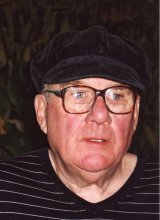
|
|
||||
|
Today is February 16th , 2026
FRAUD ALERT
QUEBECRECOMMENDATIONBooks |
ACCESS TO JUSTICEWhat is Access to Justice? Justice4you was given a book written by the late attorney Dugald Christie, a member of the LAW SOCIETY OF British Columbia. The book is about the journey Duglad Christie made in the summer of 1998 by bicycle from Vancouver, British Columbia to the steps of the Supreme Court of Canada Courthouse in Ottawa. The late attorney Dugald Christie referred to his trip by bike, as "a journey inside my head". He wrote it was "a journey into justice." The book is intensely personal, as it contains poetry which the late Dugald Christie claimed he never intended to write or publish. His journey began at the age of 57, when he decided to ride his bicycle to Ottawa for the first time with his black robe so that he could burn them on the Court House steps of the Supreme Court of Canada. -- A sign of protest, which in the long run cost him his life. The turning point for Dugald Christie was when the Federal Court of Appeal of Canadahad refused to dissociate itself from a statement made by another judge --Justice Muldoon-- wherein he had claimed Dugald Christie's client, Buddy Lee, a disabled ex-dockworker, who had been fired by his employer, a "misfit". In effect the Federal Court ended up adopting the same stand as Justice Muldoon. Since the Judges were not going to change their minds regarding his client, Dugald Christie advised the Federal Court that unless they dissociated themselves from Muldoon's statement that a disabled person may correctly be a called a "misfit" he would resign from the practice of law. The three judges sitting on the case, dismissed the appeal and Justice McGuigan roundly reproached Dugald Christie for his "threat" to resign. Dugald Christieappealed at the Supreme Court of Canada for his client, and leave was refused and within thirty days he handed the Law Society his resignation as a practicing lawyer -- in November 1997 --effectively ending a 30-year law career. Within another thirty days Mr. Justice McGuigan was dead! After burning his robe, Dugald Christie did ride his bike back to Ottawa, to get new black robes. After Dugald Christie's success with the pro bono clinics, in March of 2006, the Trial Lawyers Association of B.C. honoured him for his life's work. He was introduced by the Attorney General of British Columbia and former Justice of the Court of Appeal Wally Oppal as being "every lawyer's conscience of their professional obligations". Dugald Christie upon receiving the microphone from Mr. Oppal, said, "You represent the force of evil". Within 4 months after having been honoured by his peers, Dugald Christiedied on July 31, 2006, as a result of being tragically hit by a car en route, for the second time, by bicycle to Ottawa, delivering a Petition to Prime Minsiter Stephen Harper, calling for Reform to the Justice System. He was going to move a resolution calling on governments to ensure that those who cannot afford legal services can access the justice system. Dugald Christie was 65 years of age--- His efforts for access for justice later went on the way side when the Supreme Court of Canada decided on May 25th, 2007 that, the Charter of Rights and Freedoms does not give impoverished litigants a blanket right to obtain legal counsel, and access to justice has its limitations. British Columbia (A-G) v. Christie [2007] SCC And recently, March 2008, in a decision, by the British Columbia Court of Appeal,'supported by Justice Peter Lowry, she [BCCA Justice Mary Saunders] quoted the Supreme Court of Canada saying there is no fundamental right to access to legal services:Canadian Bar Assn. v. British Columbia [2008] "General access to legal services is fundamentally important in any free and democratic society. In some cases, it has been found essential to due process and a fair trial. But a review of the constitutional text, the jurisprudence and the history of the concept does not support the respondent's contention that there is a broad general right to legal counsel as an aspect of, or precondition to, the rule of law." The Canadian Bar Association intentionally did not properly state their action by making sure that all elements of their claim met the tests and therefore Brenner C.J. properly struck it out. As a result, CASE FOR ACCESS TO JUSTICE and RIGHT TO COUNSEL in Canada was legislated on the books, with the help of the CBA and its lawyers, who evidently also agreed with the Chief Judge that it is not a constitutional right to have counsel, since the CBA went to court unprepared and intentionally argued the wrong points. The Supreme Court of Canada went further, after Dugald Christie died, as it gave the bar and the bench more power to legislate without having someone like Dugald Christie, whine and breath down their neck. A decision from the Supreme Court of Canada R. v. McCrimmon, 2010, shows the escalalation of the loss of rights for citizens in Canada, by now making it law that a citizen arrested and held for questioning by law enforcements, has no given right to counsel. In effect, after Dugald Christies' untimely death in July of 2006, the topic of access to justice, and right to counsel, no longer is a subject the bar and judicary raises other than making sure to let citizens know that, the right to counsel is not a right ever again. High court rejects U.S.-style right to counsel Dugald Christie born in New York, and raised in Eastern Canada, came from an affluent family and this tomfoolery by the judicial bodies and the Law Society across Canada would be more than Dugald could endure. It is an attack not only on his beliefs but on the poor and on access to justice. Dugald Christie was educated in Montreal Quebec and attended Dalhousie Law School in Nova Scotia. Dugald Christie 's pro bono clinics were all managed by him up until 2005 when he naively began a relationship with the Judiciary wherein Dugald's Pro-Bono clinics are now micro-managed by the Chief Justice of the Supreme Court of British Columbia. Dugald Christie was a man torn between his allegiance to the bar, to his peers within the Anglo-Saxon establishment and his allegiance to his faith. In effect Dugald Christie , who is now revered as a Saint by the bar and by the Judicary, tried to persuade himself and others that he no longer exhibited tendencies of a lawyer, and when he did return to the bar, he wanted to believe he could make a difference from within, without selling his soul. As you read on, you will learn about Dugald Christie's own conflict in respect to "access to justice". In one of the chapters in his book entitled "Anglo-Saxon Snoring" A.S.S. Dugald basically describes an elite cult reserved for those who have adopted the English-Saxon ways. In effect, if one is a crusader for justice, than "access to justice" is not possible, in fact regardless, one way or another, access to justice, is only for a few and far in between. Extract of Christie's book on Access to Justice Thus the forgoing of Dugald Christie's personal thougts about A.S.S. says a whole lot about "access to justice". The fact that the court is prejudiced against certain individuals and group of people says that "access to justice" is a myth. More |
LEGAL ABUSE SYNDROME |
||
Justice is a conscience, not a personal conscience but conscience of the whole of the humanity.
Those who clearly recognize the voice of their own conscience usually recognize also the voice of Justice.
Alexander Solzhenitsyn

